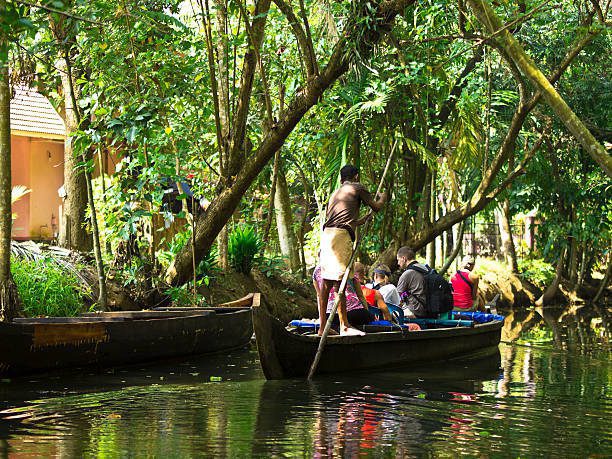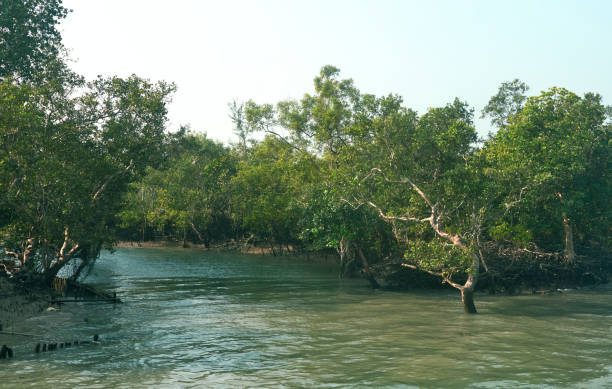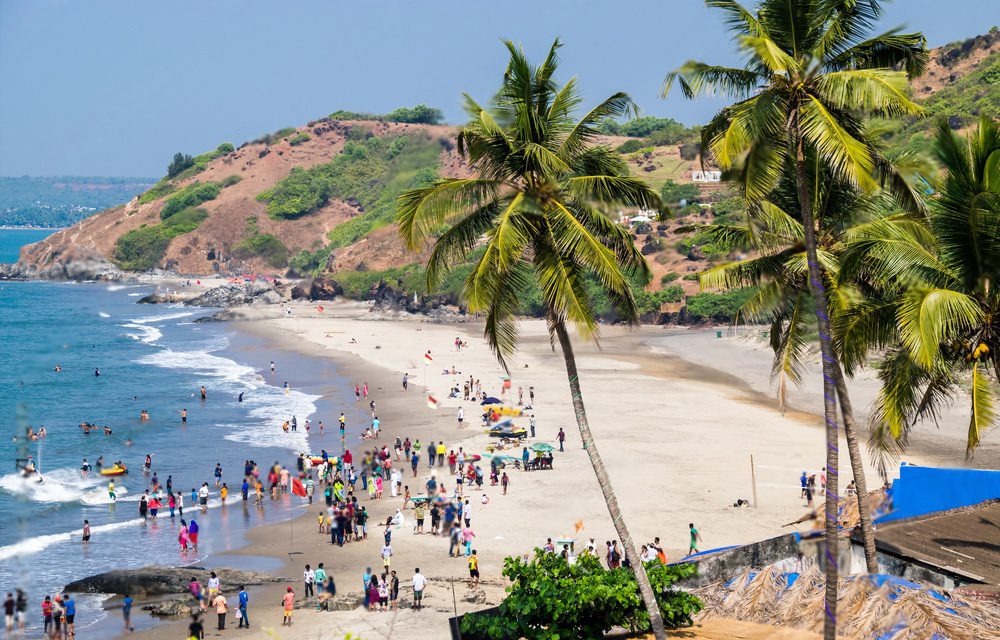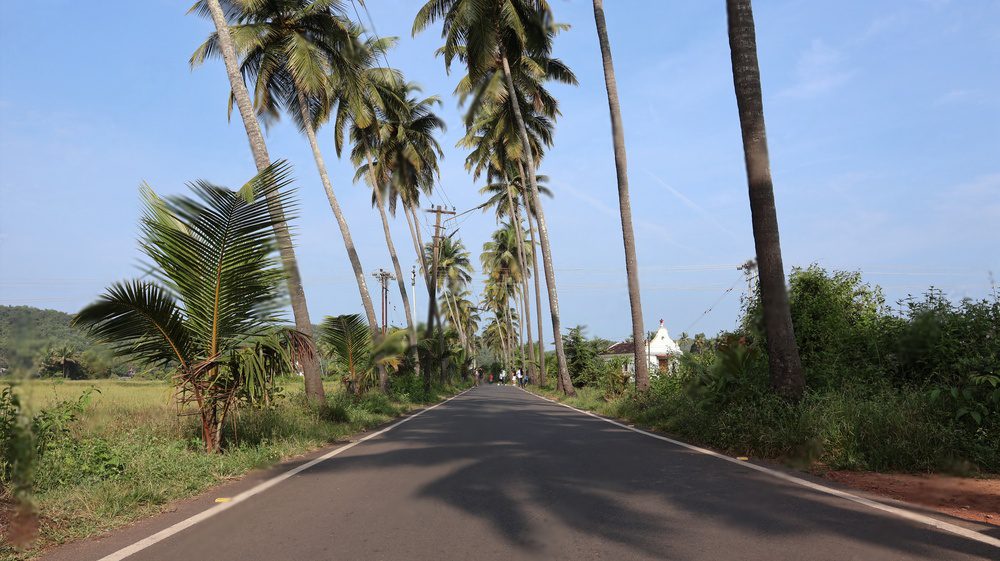Eco-Friendly Travel Experiences in India, As more and more people travel with the planet in mind, eco-friendly trips are becoming increasingly popular. India, with its stunning landscapes, rich culture, and dedication to sustainable practices, offers a wide range of eco-friendly adventures. Here are the top 10 eco-friendly experiences in India, perfect for those who want to explore responsibly and connect with nature.
1. Stay in Eco-Resorts in Kerala’s Backwaters


Kerala’s backwaters are a delicate ecosystem. By choosing eco-friendly resorts, often built with local materials and designed to conserve water and energy, travelers can experience this unique environment responsibly. Many of these resorts use waste management systems, solar power, and rainwater harvesting to minimize their impact.
Highlights
- Relax on a peaceful houseboat ride without harming the environment.
- Savor organic meals made from locally-sourced ingredients.
- Explore the stunning natural beauty of the area, including mangroves, diverse birdlife, and aquatic ecosystems.
2. Explore the Sustainable Villages of Sikkim


Sikkim, India’s first fully organic state, is a pioneer in sustainable tourism. Villages like Dzongu and Kewzing promote eco-tourism that blends seamlessly with local culture, traditions, and organic farming.
Highlights
- Get involved in organic farming or learn traditional cooking techniques.
- Explore the stunning natural beauty of the region on guided nature walks.
- Stay in homestays that embrace eco-friendly practices and support local communities.
3. Wildlife Safaris with a Cause in Madhya Pradesh


Madhya Pradesh is home to some of India’s largest wildlife reserves, like Kanha and Bandhavgarh. Many safari operators in these parks prioritize eco-friendly practices, such as using electric vehicles and limiting daily visitor numbers to minimize environmental impact.
Highlights
- Spot majestic Bengal tigers, leopards, and sloth bears while following strict ecological guidelines.
- Stay in eco-friendly lodges built with sustainable materials.
- Learn from local conservationists about their efforts to protect endangered species.
4. Trek to Eco-Conscious Villages in Himachal Pradesh


Villages like Jibhi, Tirthan, and Manali in Himachal Pradesh are embracing eco-friendly practices, from using sustainable building materials to promoting community-based tourism. Many treks in the region have guidelines to reduce waste, protect trails, and respect wildlife habitats.
Highlights
- Camp in stunning valleys while following Leave No Trace principles.
- Visit eco-villages where locals practice organic farming and composting.
- Join reforestation programs or clean-up drives along popular trails.
5. Discover the Mangroves and Marine Life in Sundarbans


The Sundarbans, a UNESCO World Heritage site, is the world’s largest mangrove forest and home to the majestic Bengal tiger. Many eco-tours in this region aim to support local communities while protecting delicate ecosystems.
Highlights
- Embark on a boat tour with local guides to explore the mangrove ecosystem.
- Spot endangered species like the Irrawaddy dolphin and learn about conservation initiatives.
- Support eco-friendly accommodations run by local communities, helping preserve traditional livelihoods.
6. Engage in Sustainable Beach Activities in Goa


Goa has emerged as a model for responsible tourism, with specific beaches designated for eco-tourism. Instead of crowded, commercialized areas, you can visit places that prioritize waste management and plastic-free practices.
Highlights
- Stay in eco-resorts located near quieter beaches that focus on sustainability.
- Join beach clean-up drives organized by local NGOs.
- Choose water sports operators that follow eco-friendly practices, such as avoiding single-use plastic and implementing responsible waste management.
7. Experience Organic Farming in Auroville, Tamil Nadu


Auroville is a unique township in Tamil Nadu that promotes sustainable living, organic farming, and a zero-waste lifestyle. It’s an ideal destination for eco-travelers seeking to learn and contribute to environmentally-friendly practices.
Highlights
- Volunteer on organic farms and learn about sustainable agriculture.
- Participate in workshops on permaculture, composting, and renewable energy.
- Stay in eco-friendly accommodations built with natural materials and powered by solar energy.
8. Explore the Himalayan Eco-Trails in Uttarakhand


Uttarakhand, renowned for its breathtaking Himalayan landscapes, offers eco-trails that prioritize conservation and community involvement. Many trekking routes, such as the Valley of Flowers and Chopta, are managed to minimize their impact on the ecosystem.
Highlights
- Trek responsibly by staying on designated trails to protect the delicate flora and fauna.
- Camp in eco-friendly tents and use biodegradable products.
- Learn from local communities about their conservation efforts and sustainable practices.
9. Participate in Camel Safaris with Minimal Impact in Rajasthan


Camel safaris in Rajasthan offer a sustainable alternative to motorized vehicles, reducing carbon emissions. By choosing eco-conscious operators, you can enjoy a memorable desert experience without harming the environment.
Highlights
- Experience a desert camp under the stars with minimal waste and no plastic.
- Learn about desert flora and fauna from knowledgeable local guides.
- Support operators committed to responsible tourism, focusing on reducing waste and water usage.
10. Visit the Eco-Friendly Islands of Andaman and Nicobar


The Andaman and Nicobar Islands are among India’s most biodiverse regions. To safeguard these delicate ecosystems, eco-friendly tourism initiatives promote sustainable practices, from using reef-safe sunscreen to limiting plastic use.
Highlights
- Participate in coral conservation projects or reef clean-ups.
- Choose eco-resorts that adhere to strict environmental guidelines.
- Practice responsible diving and snorkeling, ensuring you don’t disturb marine life.
Tips for Eco-Friendly Travel Experiences in India
- Pack Light, Travel Green: Carry reusable water bottles, straws, and cutlery to reduce plastic waste.
- Respect Local Cultures: Engage respectfully with local communities, and be mindful of traditions and customs.
- Leave No Trace: Take only photos, leave only footprints. Whatever you bring into natural spaces, take it back out.
- Support Local Economies: Choose locally-owned accommodations, guides, and food options to support the community.
- Conserve Resources: Be mindful of water usage, especially in arid regions. Turn off lights and electronics when not in use.
Conclusion
India is a treasure trove of eco-friendly travel experiences, each allowing you to connect with the country’s natural beauty in a responsible way. Explore the delicate mangroves of Sundarbans, witness the vibrant coral reefs of the Andamans, or immerse yourself in the sustainable practices of Sikkim’s green villages. Eco-friendly travel ensures India’s unique landscapes and cultures thrive for future generations. So, pack your bags with a conscience and embark on a journey that leaves nothing but footprints and takes away unforgettable memories. Plan your eco-adventure with Xplro.com, your guide to sustainable travel in India.
FAQs
1. What is eco-friendly tourism?
- Eco-friendly tourism, also known as eco-tourism, is a responsible way to explore new places with minimal impact on the environment and local culture. It involves traveling in a way that conserves natural resources, respects the heritage and lifestyle of local communities, and contributes to the preservation of the destination. Eco-tourism is not just about visiting beautiful landscapes but also ensuring that these places thrive and remain unspoiled for future generations.
2. What should I look for in an eco-friendly accommodation in India?
- Eco-friendly accommodations in India are designed with sustainability at their core. Look for places that incorporate natural or locally sourced materials into their construction and design, reducing energy use through solar power and sustainable building practices. These lodgings often implement water-saving methods like rainwater harvesting and efficient plumbing, and they minimize waste through recycling and composting. Many eco-resorts offer meals made from organic, locally-sourced ingredients, allowing you to support sustainable farming practices while enjoying fresh, local flavors.
3. Which regions in India are best for eco-friendly travel?
- India has many regions that champion eco-friendly travel. Kerala’s backwaters are renowned for eco-resorts that emphasize sustainability and community involvement. Sikkim, India’s first fully organic state, is a pioneer in eco-tourism, with its villages offering an authentic and environmentally responsible travel experience. Himachal Pradesh and Uttarakhand also feature eco-conscious villages and trails, making them ideal for nature-loving travelers. Rajasthan’s deserts offer low-impact camel safaris, and the Andaman and Nicobar Islands present opportunities for coral conservation and responsible tourism.
4. Are there any eco-friendly travel certifications in India?
- Yes, eco-friendly travel certifications help identify accommodations and tour operators that adhere to sustainable practices. Organizations like the Responsible Tourism Society of India (RTSOI) and the EcoTourism Society of India (ESOI) work to promote responsible tourism standards across the country. International certifications like Green Globe and EarthCheck are also recognized in India, certifying businesses that commit to reducing their environmental impact and maintaining ethical tourism practices.
5. How can I minimize waste while traveling in India?
- Reducing waste while traveling in India can be as simple as making conscious choices in daily activities. Bring along reusable essentials, like a water bottle, cutlery, and shopping bag, to avoid single-use plastics. Instead of purchasing travel-sized toiletries in plastic containers, use reusable containers that can be refilled as needed. When buying products, choose those with eco-friendly or minimal packaging, and always make an effort to recycle whenever facilities are available. Being mindful of waste disposal also helps keep India’s natural landscapes clean and beautiful.
6. What eco-friendly activities can I participate in while visiting India?
- India offers a wealth of eco-friendly activities. Wildlife safaris are available in many of the country’s national parks, where conservation-focused operators help travelers engage responsibly with nature. India’s eco-preserved areas, like the Himalayan eco-trails, invite visitors to trek in an environment-friendly way, following designated paths to protect wildlife and vegetation. Visitors can also experience organic farming in places like Sikkim or Auroville, participate in beach clean-ups in Goa, or take part in coral conservation projects in the Andaman Islands.
7. How can I support local communities during my eco-trip?
- Supporting local communities during your trip can have a significant impact. Opt for locally-owned homestays or eco-resorts, which allow you to directly support the local economy. When purchasing souvenirs, look for handmade crafts and products sourced locally, which helps artisans and preserves local traditions. Dining at local eateries instead of large chains also ensures that your spending benefits the community. Hiring local guides is another great way to contribute, as it provides income and creates opportunities for cultural exchange and learning.
8. What are some eco-friendly trekking practices?
- Eco-friendly trekking practices protect natural landscapes and respect local customs. It is essential to stick to marked trails, as wandering off-path can harm native plants and disturb wildlife. Always pack out your waste, leaving no litter behind. Many trekkers use biodegradable toiletries to avoid contaminating water sources. Supporting local homestays rather than setting up temporary camps can reduce your environmental impact and provide locals with an economic benefit, creating a more sustainable trekking experience for everyone.
9. How can I contribute to wildlife conservation in India?
- Wildlife conservation in India benefits significantly from responsible tourism. By visiting government-approved reserves and sanctuaries, you can help fund conservation efforts while respecting guidelines that protect animal habitats. Choosing operators who prioritize eco-friendly practices, such as limiting visitor numbers and educating guests on wildlife protection, is also essential. Additionally, respecting animals by keeping a safe distance and never feeding them helps maintain their natural behaviors. Some parks offer options to support NGOs or make donations toward wildlife protection projects, allowing you to make a direct impact.
10. What are eco-friendly travel products that I should bring to India?
- Packing eco-friendly travel products makes a difference in reducing your environmental footprint. Essentials include a reusable water bottle, ideally one with a built-in filter, which can save on plastic waste. Biodegradable toiletries, like soap, toothpaste, and reef-safe sunscreen, help protect local ecosystems, especially if you’re visiting sensitive areas like beaches or rivers. Solar-powered chargers can reduce your dependence on traditional electricity sources, and reusable bamboo or metal cutlery and straws minimize single-use waste. A sturdy, reusable bag can serve as a shopping or storage bag throughout your trip.
11. How can I reduce my carbon footprint while traveling in India?
- Reducing your carbon footprint involves choices around transportation, accommodation, and energy use. When possible, choose public transportation, such as trains or buses, instead of private taxis. Eco-friendly accommodations with energy-efficient practices further help minimize your impact. Additionally, opting for “slow travel” by staying longer in each destination rather than taking frequent flights between places lowers your carbon emissions. Walking or cycling when exploring nearby sites can also be a great way to experience a place while keeping your environmental impact low.
12. What are some responsible travel practices to keep in mind in India?
- Responsible travel in India includes respecting local customs and traditions. Dress modestly in culturally sensitive areas, and be mindful of natural resources, particularly in regions facing water shortages. When visiting natural reserves, avoid making loud noises or disturbing wildlife, and follow guidelines that help protect the environment. It’s also important to leave nature undisturbed by not collecting plants, rocks, or other souvenirs from natural areas. Finally, by supporting sustainable tourism efforts and choosing eco-certified providers, you help promote a future of tourism that respects both nature and local communities.








